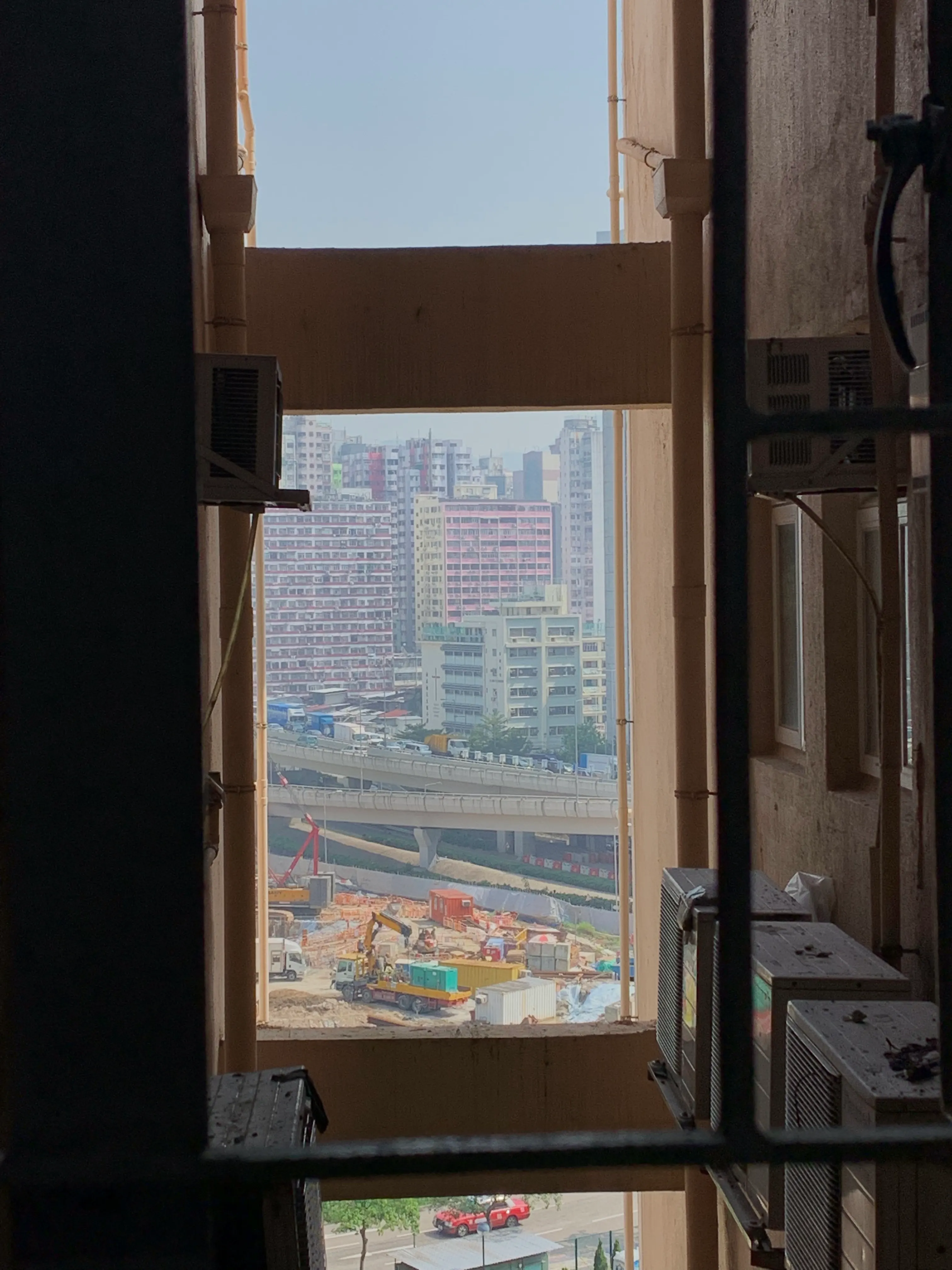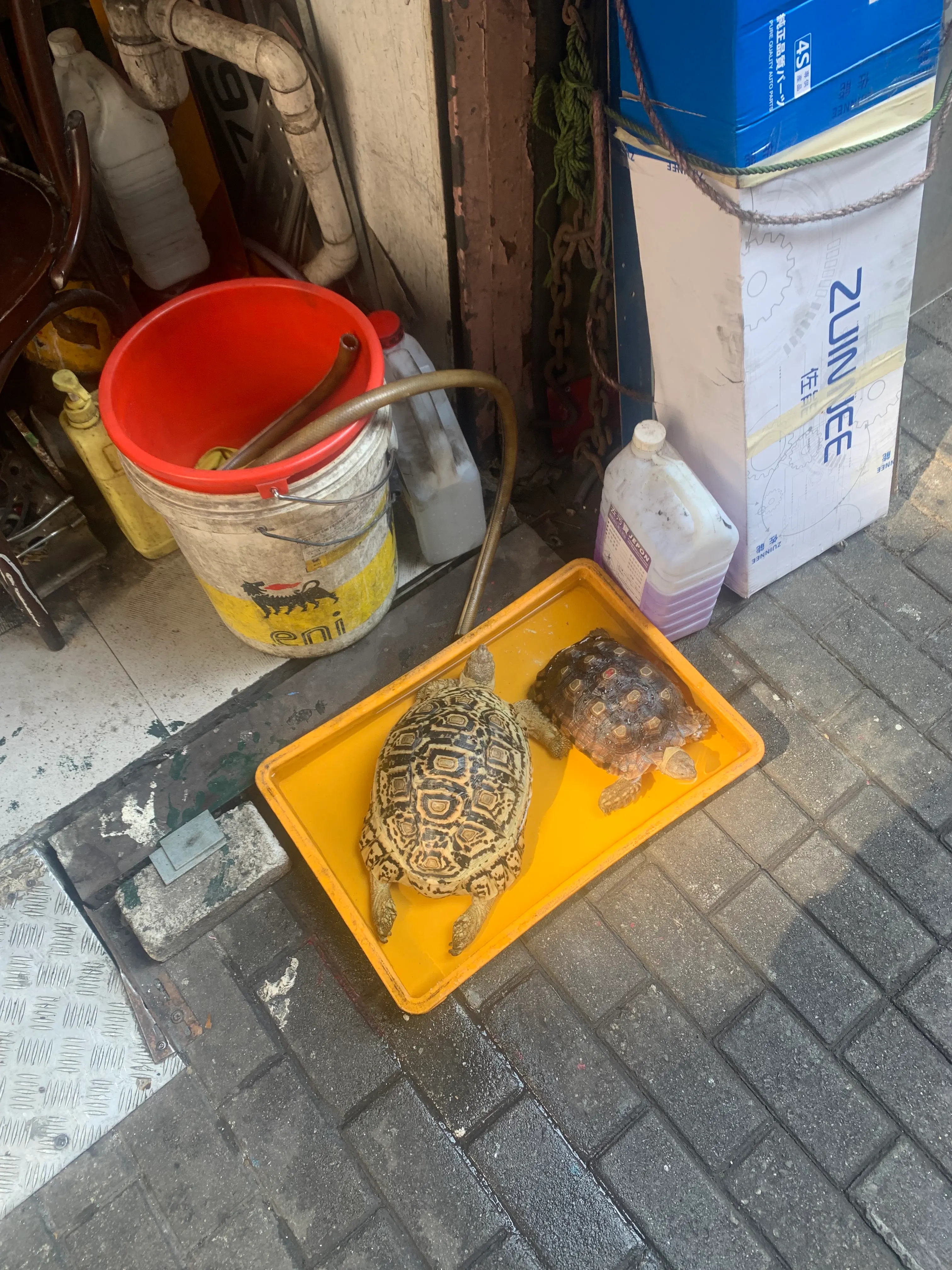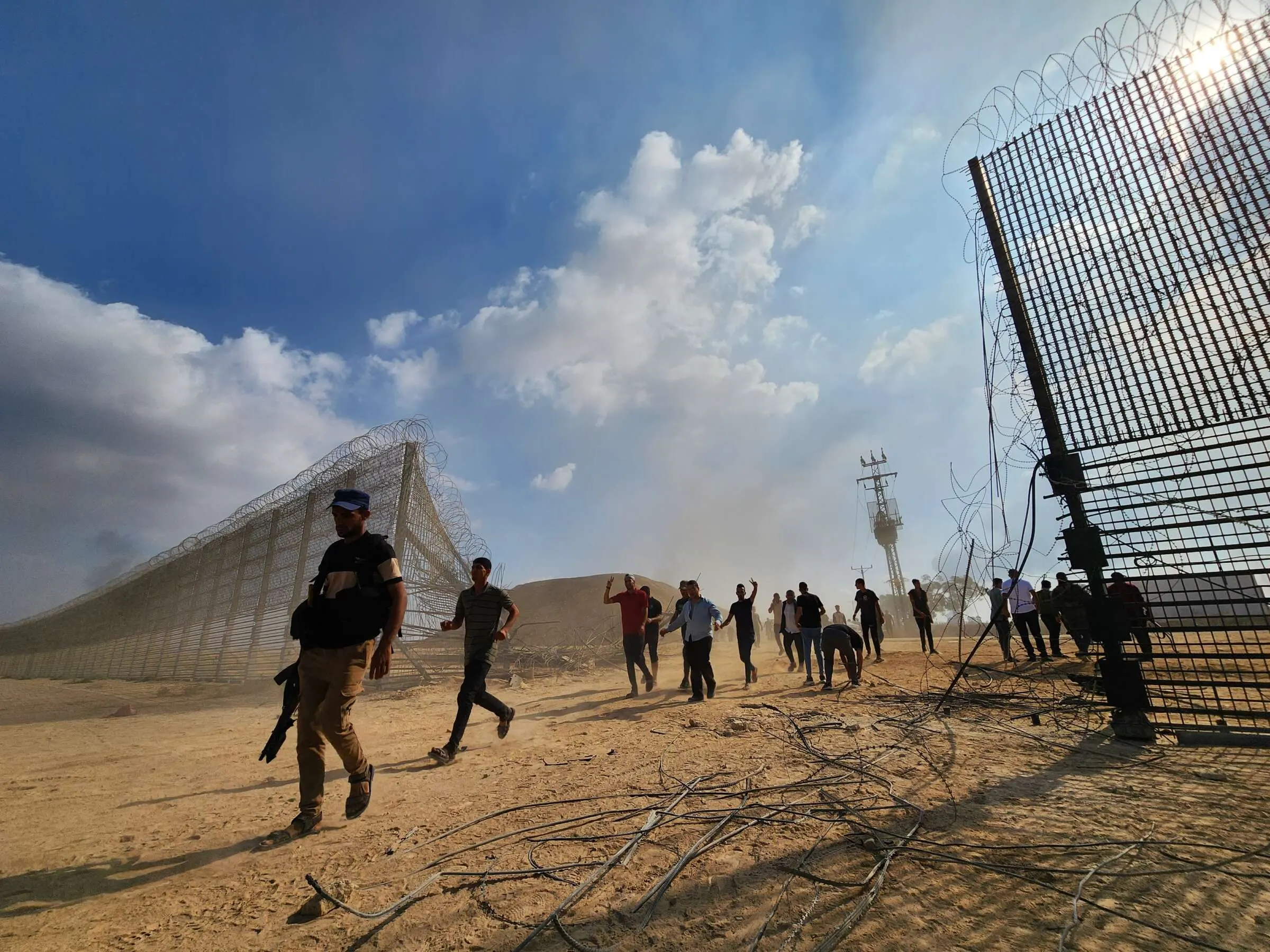In 2022, I published a series of correspondences with a former student, who was arrested and incarcerated in Hong Kong on charges of rioting. In 2019, TZ was part of a mass, student-led movement against proposed legislation that further eroded Hong Kong’s independence from the Republic of China, promised by the constitutional principle of “one country, two systems.” By 2020, Hong Kong was under Beijing’s national security law, which worked to repress dissent writ large—it was under this banner in which TZ received a lengthy sentence and began her incarceration. It is 2024 and I am elated to announce that TZ is out: there’s been almost no good news this year, so I am thrilled to announce that TZ is free.
Throughout her incarceration, TZ wrote to me about the books she was reading, the various positions Hong Kong protestors took on transnational solidarity (particularly with regards to the Movement for Black Lives), and the ways in which her and her comrades fight and continue to fight the carceral state.
Rather than witnessing someone’s desires for freedom wilting, I received letters that recounted the kinds of protests TZ practiced inside. From the removal of books and fighting the assaults faced by other inmates, TZ fought each and every injustice, exclusively, to no avail. She was thrown into solitary confinement, her letters revoked and suppressed, her personal library destroyed—everything terrible happened. As her reader and former professor, as someone who cares about her, I began to worry about how they might extend TZ’s sentence or charge her with something else absurd to induce her capitulation.
Upon her release and during our first call, I asked TZ why and how she continued to challenge the system from inside the prison, when change proved to be almost impossible, and she tells me:
“Even if I cannot change the system…
what I did not do, will change me.”
***
An excerpt from TZ’s letter, Spring of 2023
…I feel like we are all trapped in cages, either visible or invisible. I (we) wanted to fight and win, but when you are in a fight, it becomes so personal and physical. The stress, pressure and pain are too much to handle. More than 80% of the protestors I know said that they will leave Hong Kong once they are released. Some of them said that they will never come back again. No one wanted to lose, but it’s so difficult to keep standing up and standing at the front during the fight. It’s scary and sometimes I am angry that I was scared.
Sometimes, I examine myself, wondering if I was tamed already. Did the fight become a fight inside boundaries? Did our vague speeches become a kind of ceremony, a meaningless routine?
I really admire those who sacrifice their lives to fight: 10, 20 years. Being in prison for over 2 years is already wearing me out. I can’t imagine how to face this reality once I am out (even here in prison, a lot of prisoners teased us and asked how much we were paid [by foreign intelligence agencies] to protest).
I wish to have the determination, courage and strength even after many years of failure and frustration. I hope I will never yield to this reality…
We were taught and told that standing up and against is wrong. Especially here in prison. They only allowed us to say “yes madam” and “sorry madam.” So I’d rather keep my mouth shut. But I am not sure if it is a sign of giving in, too. It reminds me of a song by an indie band in Hong Kong…”You have to be very strong. If you want to do something wrong”
***
I’ve been thinking about TZ’s encapsulation, the refusal to deny oneself, and the strength to hold onto the desire to fight against this reality.
It has become customary to ask those who fight injustice: What good does it do? And if their actions do not immediately change the world in ways we can quantify, they are admonished as being foolish, or critiqued for trying something that did not work or made no visible impact. This is the normalization of utilitarian theory as life, where maximal impact is measured by those removed from action. Utility, impact, often in the form of policy, law, and socialized “good” becomes placed above questions such as those posed by TZ: Who will you become if you stop yourself from what you were going to do? How will you change when you practice and condition yourself to capitulate? Why is it acceptable to repress and deny yourself? When someone imagines moving and acting towards global liberation rarely are they asked: How will it change you and your life if you repress this want, this desire and political ambition?
Because of TZ, I want to write a treatise against the ways in which utilitarian thinking has mutated our activism, our education, our action, our lives. I want to write declarations that defend trying, and trying again, because why not. This would be a manifesto that proclaims empowerment is not the state of feeling good in this reality, but a practice of life unsurrendered to living.
This to-be-written-manifesto would try its hardest to rush against the liberal machine that’s naturalized neutrality as a good, and public inaction as the ultimate site of protection. So many people I know—and sometimes respect—impulsively explain that so-and-so cannot be done because of the potential criticism and/or the risk that it carries. They imply they’re waiting for a better strategy or a better plan evacuated of immediate stakes. Under utility, so many of us have trained ourselves to explain why someone cannot, rather than protect the site of why someone does.
There is a need for more theory and practice that protects those who have tried (perhaps imperfectly) so that we might try again (imperfectly).
*

Whilst TZ and her comrades prepared themselves to be released back into the world, she tells me that the world outside did not prepare for their re-entry. Of this, she describes “a gap between us and the world outside” that remains open.
The journalist Kanis Leung recently reported on the job discrimination that Hong Kong activists have encountered upon their release, and perhaps under the national security law, the mass mobilization and collectivity of 2019 seems distant from present day interactions.
TZ relays how HSBC, a British bank based in Hong Kong, recently sent letters to protestors informing them that given their political actions, they are not considered trustworthy, and thus, their bank accounts will be shut down. The protestors surmise that similar letters will be sent to others as they are released from prison. Their activism has neutered them of value, and without value the economy no longer wants them in the system; thus, it will block them from all forms of participation.
The economist Ha Joon Chang has remarked on how economic use logic has usurped all vectors of life. As in, everyone now feels like they have to explain or apologize for being economically viable or unviable. It is considered good to make money and live a life that makes sense in economic terms. It’s a sin and a folly to study and live on the fringes of capitalist accumulation. Chang compares our simulacra to a moment in which the Vatican held power through the Bible but the text was in Latin—a language outside the scope of most of the population—and forbidden from translation. He suggests that the Bible and its language held pivotal power, but was mystified to the population through its willfully opaque language. The power of the church to shape reality in its image and control lives came through the mystification of a text whose authority is questioned today, a precedent for how contemporary actions, desires, and pains that cannot be translated or understood in economic terms are suppressed and criminalized. Perhaps some of us today believe the Bible should no longer be the center of power and logic in life—and thus neither the Bible nor its translation barriers should affect how we currently live our lives (though this would not remove us from the moralism Christianity retains). Likewise, perhaps one day, we will imagine neither money nor economic use to be the center of power, and those with the most access to its language and syntax, no longer considered superior.
Under the ruse of this reality and utility, the protestors have been denied visas, bank accounts, employment, and more.
I think about TZ’s statement that the world did not prepare—or change—while they were held inside. This world did not work towards a transformation that could hold their lives upon release. Instead, this world made up more rules as to why they should be disallowed access to the very systems forged to constrain their freedoms, in order to demonstrate how their monopolies and authorities are perversely implicated to their existence.
Defiance will cost you more than your life—remains the message of obedience. The protestors now face all the systems they and the world outside could not defeat: private banking systems, wage-labor and its ongoing exploitation; hegemony as reality.
Some might say, such punishments are unsurprising and within the rights of corporations. Within the logic and reality of utilitarianism, the bank prevails.
*
Texts such as Merle Woo’s ”Three Decades of Class Struggle on Campus” and ”Training for Exploitation: Politicising Employability and Reclaiming Education” are pivotal to conversations about student protests and the antagonisms between education and its utility. In delineating her support for the student-led fight against the University of California’s investments in South African Apartheid, Woo writes how the university attempted to discipline students against independence and political ambition. She pinpoints the institution’s tactics:
“Keep young people down, ignorant, destabilized. Make them compete for every good grade they get. Students have no economic power so their survival depends on grades. Not knowledge, or maturity or integrity. Academic life depends on grades and degrees and the false promise of a good job in the future. Turn them into arrogant snobs, ashamed of their immigrant or poverty-stricken, ‘uneducated’ ancestors.”1
This eerily mirrors the introduction for Training for Exploitation, which reads:
“Students are often implicitly expected to turn off their critical and political faculties when they enter a ‘professional practice’ seminar dedicated to self-marketing, art /design copyright or fundraising.”2
I imagine passing out copies of Woo’s essay and Training for Exploitation in class, wondering how its self-referential status will function pedagogically. I imagine the students—victims of the neoliberal design they are often blamed for being unable to defeat—staring at the text, flipping through the pages slowly. I imagine our discussion of student protests, and then, future jobs. What kind of job will you have, or want? How will you measure your own impact?
In order for the reality and study of student protest and exploitation to not be one of enclosure (which is neither the objective of Woo’s writing nor Training for Exploitation), I would want to bring in a short piece by Sigmund Freud, his “Contribution to a Discussion on Suicide,” in which he writes:
“Secondary school should achieve more than not driving its pupils to suicide. It should give them a desire to live… The school must not take on itself the inexorable character of life: it must not seek to be more than a game of life.”3
This contention against the gamification of life brings me back to TZ and her proposition that all that she does not do also becomes marked on her life. It’s so easy to celebrate the wins and to glamorize the losses as part of some life lesson or pathway to more glory. It’s so classically predictable to narrate around winning and success—Freud could see it! It’s so easy to instruct others and pretend, yourself, that the goal of this life game is the maintenance of all that is set forth as reality. Rather than: What is your desire to live and how did you change today? What did you not deny yourself today as practice for tomorrow?
***
Mid-2023
I cannot find the right word to describe how I felt when they threw all the books away. I knew that it was going to happen because they had thrown away all the donated books in the other workshops. I rehearsed this scenario in my head… I was determined to ‘raise my hand’ no matter the consequences. And it happened yesterday afternoon. The madam brought in dozens of plastic bags and threw away all the books. Hundreds of books, without hesitation…
We had so many nice books in our common bookshelf, both Chinese and English. We had “Road to Freedom,” “To Kill a Mockingbird,” “The Book Thief” …we had religious books, course books, language-learning books. It was such a nice thing, wasn’t it, that people here read and find their power? To understand, to learn and to become someone better? Wasn’t this the goal of the correctional service department? Rehabilitation—the first priority of the prison?
But they just threw away all our books. They took every single book out from the locker, they even tore them apart, threw them into plastic bags and treated them as rubbish. One hour ago, those were still books that were cherished by different prisoners. Accompanied them for so many sleepless nights. What happened?
Solidarity is considered toxic here…You are not allowed to be happy in prison, let alone united. It is dangerous and provocative especially when protesters are involved. Last year, they locked 18 people in solitary confinement for over 3 months for sharing chocolate with a protester. They said it was an act of bribery, a seed of provocation and a path to possible revolution (a riot, they called it).
I told myself, if they eventually throw away the books in our workshop I will complain, I will protest, I will resist… I don’t care if they are going to lock me up or throw away all my letters. I just know that it’s not ok to throw away books. It’s not okay to stop people from sharing, reading, learning.
…
We are not allowed to share books, or anything in prison, not even a piece of tissue to someone in need. Well, of course we still do it secretly, under the table. But we all know it is not allowed. No sharing, no giving, no creating, no greetings; life here is about keeping our eyes closed and keeping our mouth shut. The less you know, the less you care, the safer you will be.
…
***

“what brutal hours, what brutal days,
do not say, oh find the good in it, do not say,
there was virtue; there was no virtue, not even in me”
—Dionne Brand, Ossuaries (2010)
In the spring of this year, I heard Ashanti Alston—a former member of the Black Panthers Party and Black Liberation Army—speak at Brown University, where he opened the talk by stating, “Practice is the criteria for truth.” And I wonder about the relationship between practice that’s often left out in discussions of truth, that TZ and other student activists continue to push, almost organically.
Over the phone, TZ speaks without hesitation about her current learning efforts. She tells me how herself and other released protestors have formed book and movie clubs, where they get together and learn about the world. She tells me how stupid she thinks single axis activism is: Is farming and the environment not connected to capitalism and gender and everything else? How can you just fight for one thing? When she speaks, I don’t sense the fear that radiates from so many—myself not exempted.
TZ’s disregard for the fear of authority feels like the kind of air I want to breathe: TZ doesn’t narrate herself as a victim. Her politics strives above game crumbs, above even the enclosed, mystified self as authority. When I ask her about this defiance and refusal to surrender, to capitulate and fear, she says, “The authority is afraid that you’re not afraid and that you’ll keep learning.” Before adding, “They’re afraid that you’ll think of a better solution—and you’ll do it again.”
Perhaps one way to prepare for a world that can hold those who fought and continue to fight is training to do it again.
*
Acknowledgements
This text would be formless without Eugene Yiu Nam Cheung, who generously guided and edited it, and offered a space for TZ’s letters. I’m forever grateful to TZ, for existing.

